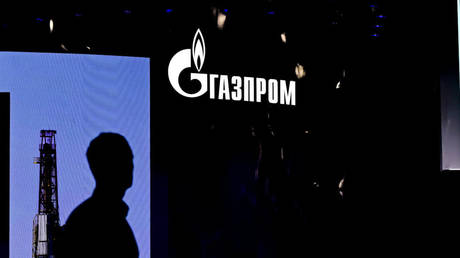
EU wants to keep Russia-Ukraine gas transit – Bloomberg
Brussels has reportedly approached Azerbaijan for a swap deal
European Union officials are trying to negotiate the continued use of Ukraine’s natural gas transit infrastructure after its contract with Russia’s Gazprom expires at the end of the year, Bloomberg reported on Monday.
Regardless of the conflict between Kiev and Moscow, Gazprom has continued to honor the terms of its transit contract with Ukraine’s Naftogaz, delivering about 15 billion cubic meters of gas a year to Austria and Slovakia.
According to Bloomberg, talks are still in the “early phase” and many of the details need to be sorted out. The EU would prefer to buy gas from Azerbaijan instead of Russia and have it delivered via Ukraine’s infrastructure.
“I’m doing everything to find a solution [so] that the Ukrainian gas transportation system will continue to be operational because it’s a big asset and someone should be a customer,” Alexey Chernyshov, CEO of Naftogaz, told Bloomberg. “Otherwise it’s loss generating.”
Kiev would like to keep the revenue from gas transit, which amounted to $1 billion in 2021. Chernyshov has ruled out extending the current arrangement with Russia, however.
Read more
Ukraine to nationalize plant belonging to ‘pro-Russian businessman’
Azerbaijan’s own pipeline to the EU is already at full capacity, and Baku does not have direct access to Kiev’s network. A potential deal might look like a swap, with Russia providing “Azeri” gas to the EU, while Azerbaijan sends “Russian” gas elsewhere, allowing the bloc to maintain its trade embargo against Moscow.
Neither the government in Baku nor the state oil and gas company SOCAR commented to Bloomberg on the rumored deal. Austrian authorities likewise declined to comment.
Slovak Prime Minister Robert Fico spoke about the possibility of an arrangement last month, following a trip to Azerbaijan, before he was shot by a pro-Ukrainian activist.
“Now, it depends on negotiations between companies such as Russian Gazprom, Azerbaijani, Ukrainian companies, and others to agree on economic and pricing conditions,” Fico told reporters at the time. “If they do, Slovakia could import gas from Azerbaijan, with part of it staying in Slovakia and part passing through to other countries.”
The European Commission reportedly believes the bloc can weather the end of Russian deliveries by relying on alternative suppliers and implementing the climate agenda, which involves saving energy and using renewables.
People familiar with the talks – who requested anonymity due to their sensitive nature – have told Bloomberg that any decisions will likely be made towards the end of the year, as the existing deal is set to expire as the European winter approaches.
“Developments on the battlefield may also be a factor,” the outlet added.


